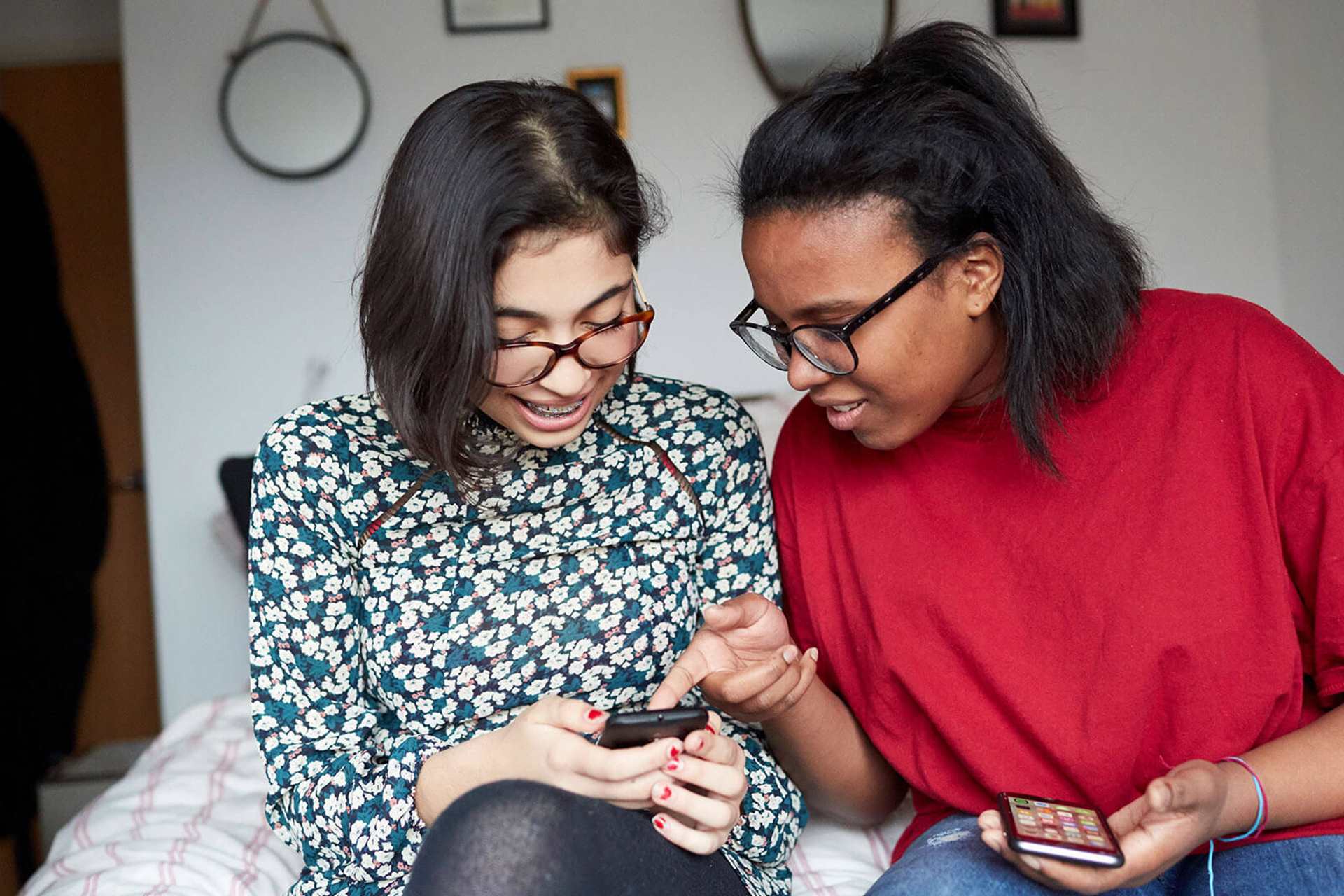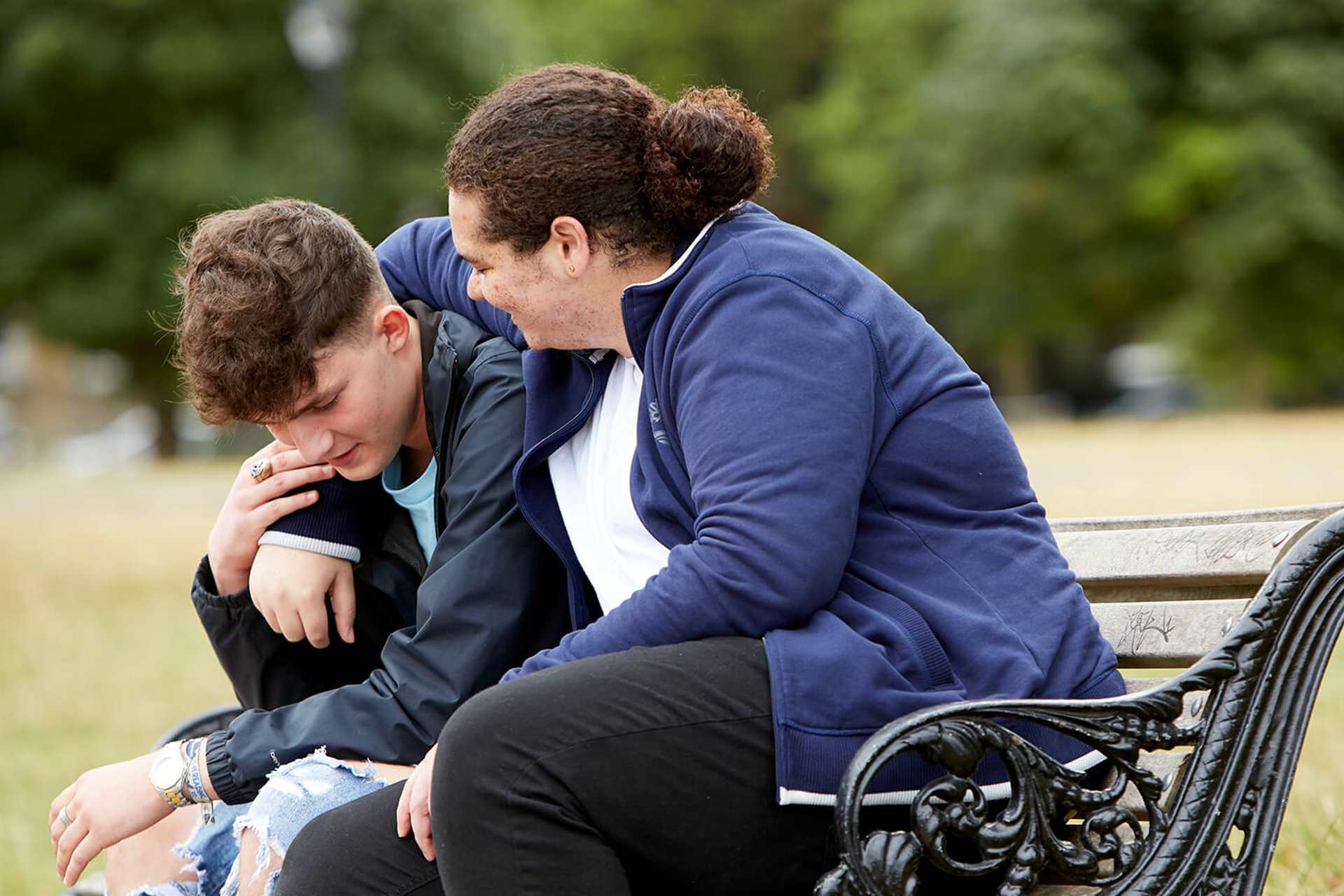Topics mentioned: ADHD, supporting a friend
About: Hannah explains how friends and family can support someone with ADHD and help them through the challenges of living in a neurotypical world.
If you’re supporting someone with ADHD, it’s hard to imagine living in a world that doesn’t make any sense to you. But even the littlest things can make a huge difference.
Getting a diagnosis of combined type ADHD was more than just a ‘label’. It allowed me to understand myself so much better and explained some of my challenges and difficulties. Growing up I felt very lost, confused and broken. The diagnosis wasn’t a magic, overnight cure, but it planted the seeds for me to grow and ultimately bloom.
If you’re supporting someone with ADHD, it’s hard to imagine living in a world that doesn’t make any sense to you. But even the littlest things can make a huge difference. With our needs met, we can have such creativity and imagination, unique and interesting perspectives, phenomenal conversations and a bucket load of resilience.
Here’s my advice for friends and family of someone with ADHD.
People with ADHD are all different
We may have the same ‘label’, but we are as individual and unique as snowflakes. What works for one may be the opposite for another. Lots of people with ADHD will also have other conditions which may affect their ADHD and could also change the support they require.
I am also autistic, with pathological demand avoidance (PDA), avoidant restrictive food intake disorder (ARFID) and have complex PTSD. These all affect who I am, the way I present, and the support I need.
For me, the best support comes from people who are willing to work with me. Who start with certain plans but are willing to change as the situation unfolds.
Listen and learn about their experience
Be willing to listen and learn about a life which may be very different from your own. It might not make sense to you or it might make you feel uncomfortable, but try not to judge. You may never understand why our brains act this way, but supporting someone is about accepting them for who they are and learning the ways you can lessen any additional stresses. Even in a small way.
Be led by them when it comes to support
It has taken me a long time and a LOT of self-reflection (which my ADHD medication definitely helped with!) to know myself well enough and find what works for me. It can be a long and bumpy road, but you can help them by adapting to their needs as they learn.
Also, our support needs can change in different and new situations. For me, the best support comes from people who are willing to work with me. Who start with certain plans but are willing to change as the situation unfolds.
Sitting for long periods of time can be really distressing and this helps with focus or comforts me when I get overwhelmed and frustrated.
Don’t try to fix everything
If they are in the height of a meltdown or feeling overwhelmed, don’t try to offer solutions or logic in what they are thinking. It’s about sitting with them and allowing those feeling to be. Work with them to regulate their nervous system, then at a different time, help them to work through those thoughts and feelings. This could be the time to note down triggers and to talk through their thoughts or how something made them feel.
Be willing to make adjustments
ADHD is a disabling condition. That doesn’t mean we aren’t capable, but it does mean that we need adjustments. These adjustments will look different for everyone, but help us access things in the same way neurotypical people can. But quite often, even with all the support and reasonable adjustments, living in a world built for neurotypical people is still difficult.
It will be different for everyone, but for me, if I go for a meal or watch TV, I bring things for me to do at the same time, like my phone, bullet journal or colouring. I’m not being rude; my brain focuses better when busy. Sitting for long periods of time can be really distressing and this helps with focus or comforts me when I get overwhelmed and frustrated.
People with ADHD make massive changes and adjustments for the comfort of others every day.
It's okay to make mistakes
Supporting someone who is neurodivergent is amazing, but can be emotionally draining, confusing and comes with a variety of challenges. We are all human and we are not perfect. You might mess up when supporting someone with ADHD, just like anyone else. It’s about owning the mistake, apologising and working together to move forward and learn.
Remember, we are trying too
However hard it is for you, which is totally valid, being neurodivergent in a neurotypical world is even harder. People with ADHD make massive changes and adjustments for the comfort of others every day. I am constantly doing things which are detrimental to my wellbeing and are totally out of my comfort zone. All we ask is that you try to meet us part of the way.
We are constantly faced with what we can’t do, how we are different and what we do wrong. Instead, you can be the voice of hope and belief.
My final message is this: be your ADHDer’s biggest cheerleader. We are constantly faced with what we can’t do, how we are different and what we do wrong. Instead, you can be the voice of hope and belief.
Don’t allow people to be ableist or discriminatory. Don’t let anyone tell them they can’t or that they are bad. With our supporters by our sides, encouragement and opportunities, we can achieve whatever we like.
More information and advice
We have tips and advice to help you find the support you need. Take a look at our guides.
Where to get help
However you're feeling, there are people who can help you if you are struggling. Here are some services that can support you.
-
Childline
If you’re under 19 you can confidentially call, chat online or email about any problem big or small.
Sign up for a free Childline locker (real name or email address not needed) to use their free 1-2-1 counsellor chat and email support service.
Can provide a BSL interpreter if you are deaf or hearing-impaired.
Hosts online message boards where you can share your experiences, have fun and get support from other young people in similar situations.
- Opening times:
- 24/7






